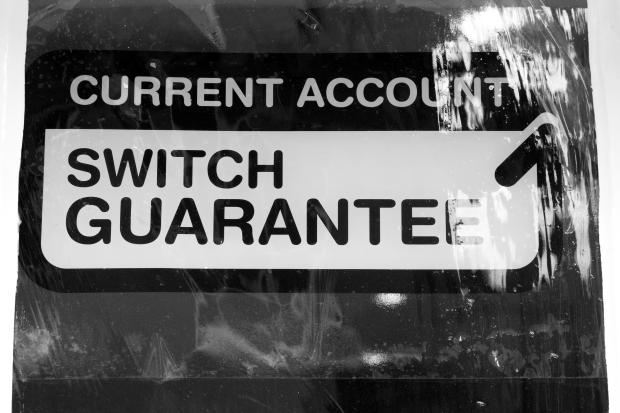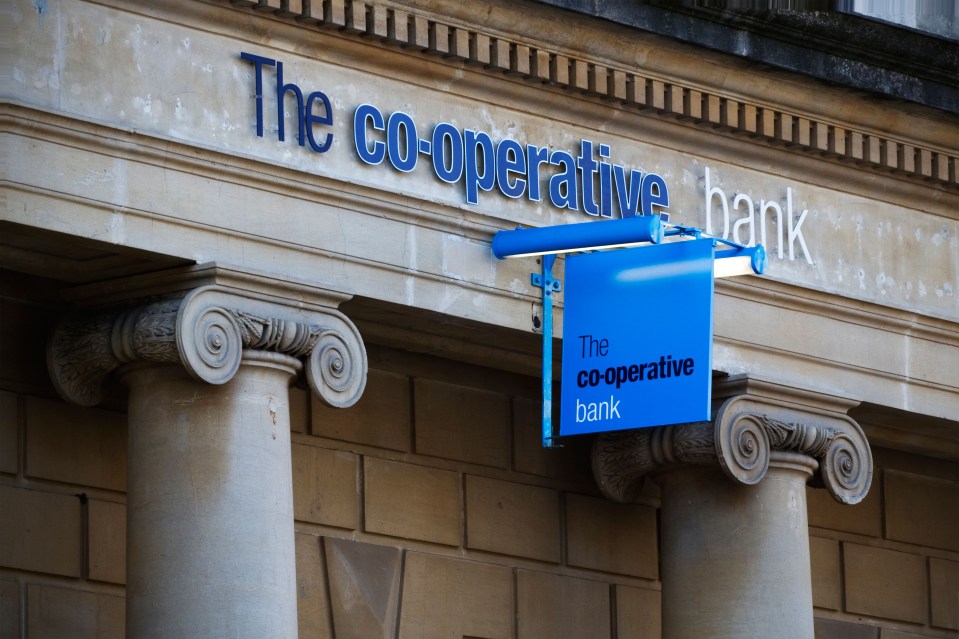A MAJOR bank has made a number of changes to its current account terms that could affect some customers.
In terms and conditions quietly updated in March, the Co-Operative Bank, which has around 2.5million banking customers, made a raft of “minor tweaks” to its terms.
It recently contacted customers by post or email about the changes.
Some of these updates were to reflect recent rule changes, such as new rules around how banks should respond to so-called authorised push payment (APP) scams.
All banks are affected by these rules and have had to update their terms.
This is good news for customers, as it means they will be refunded if they are a victim of this type of scam.
Other changes have been made because the UK is no longer a member of the European Economic Area (EEA) and so some of those wider rules no longer apply.
But some other changes were made simply due to changes to the bank’s own processes.
One major area that has seen several changes is around “ending services and closing your account”.
Some of those changes could have surprising or negative impacts on some customers.
For example, under the new rules, current accounts will be treated as inactive after six months of no use, and this means debit cards will not be automatically re-issued.
The bank will also now be able to close your account immediately and without warning if it decides that you are, or are at risk of being, bankrupt, enter into an IVA – a type of debt repayment plan – or are in similar financial trouble.
The bank will also be able to shut your account immediately if you die.
And under its new terms, the bank will be able to convert packaged current accounts to regular current accounts if it believes this is more suitable for the customer.
Packaged bank accounts are current accounts that come with extra perks, like travel insurance or a rewards scheme, in exchange for a small monthly fee.
The bank will be able to change your account back to a regular current account with no fee if it “reasonably believes” that a packaged account “is no longer appropriate for you”.
Here is a summary of the key changes relating to your account being closed:
- If you don’t make any payments and there is no other activity on your account, except on a linked savings account, for six months, the bank may treat your account as inactive.
- Your debit card will not be automatically re-issued if there is no activity in your current account for six months
- If the bank reasonably decides that you are, or are likely to become, bankrupt, enter into an IVA, or enter into an arrangement with creditors, it can close your account without notice
- In future, if you have a packaged account, the bank can change this to a current account that doesn’t have a fee if it reasonably believes that this would be appropriate for you.
The changes kicked in from this month.
A spokesperson for The Co-operative Bank told The Sun: “We’ve recently communicated some changes to the terms of our current account products.
“These changes reflect recent mandatory changes to rules intended to protect and reimburse customers who are victims of payment scams and which apply to all banks, and some minor changes to reflect bank processes and to align to our obligations under consumer protection legislation.
“Customers who hold one of our current accounts, which offer an ethical way to manage your money, will have received details of these changes in the post or by email.
“Customers that would like to talk to us about any of these changes are encouraged to get in touch with our customer service teams.”
Other bank account changes
Banks regularly update their terms and conditions as they have to communicate any internal changes to their processes to customers.
For example, this week Chase Bank updated the terms around how customers get cashback on their accounts.
New customers previously got 1% cashback on most debit card spending for a full 12 months.
But as of this week, these cashback benefits have been slashed.
Shoppers will now only earn cashback on select spending categories, with everyday purchases no longer qualifying for rewards.
Banks also regularly change the interest rates they offer on savings accounts, meaning customers may get less back on their savings than they originally thought.
In February, Starling Bank announced it was ending interest payments on current accounts for all customers.
The bank used to 3.25% interest on balances up to £5,000, but ended this huge perk on February 10.
Earlier this year, Santander also scrapped its text alerts service for its millions of customers, which experts branded “bad news”.
And Lloyds is set to change the fee on its Club Lloyds accounts from £3 to £5 per month.
If you are no longer happy with your current account because of changes that have been made, you can easily switch to another bank using the Current Account Switch Service (CASS).
How do I switch bank accounts?

SWITCHING bank accounts is a simple process and can usually be done through the Current Account Switch Service (CASS).
Dozens of high street banks and building societies are signed up – there’s a full list on CASS’ website.
Under the switching service, swapping banks should take seven working days.
You don’t have to remember to move direct debits across when moving, as this is done for you.
All you have to do is apply for the new account you want, and the new bank will tell your existing one you’re moving.
There are a few things you can do before switching though, including choosing your switch date and transferring any old bank statements to your new account.
You should get in touch with your existing bank for any old statements.
When switching current accounts, consider what other perks might come with joining a specific bank or building society.
Some banks offer 0% overdrafts up to a certain limit, and others might offer better rates on savings accounts.
And some banks offer free travel or mobile phone insurance with their current accounts – but these accounts might come with a monthly fee.








